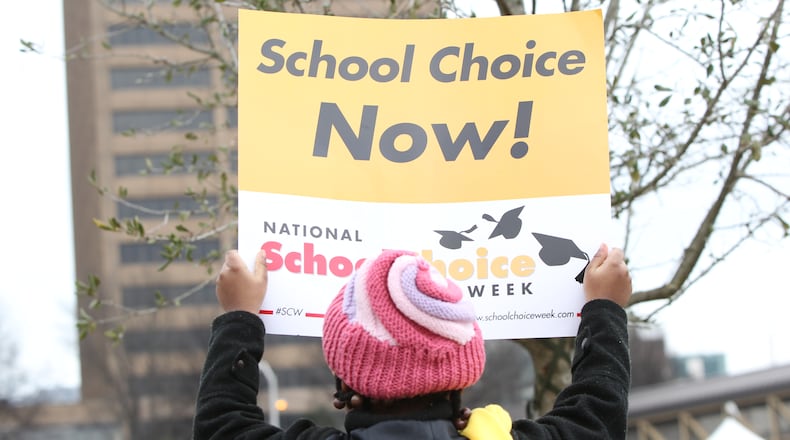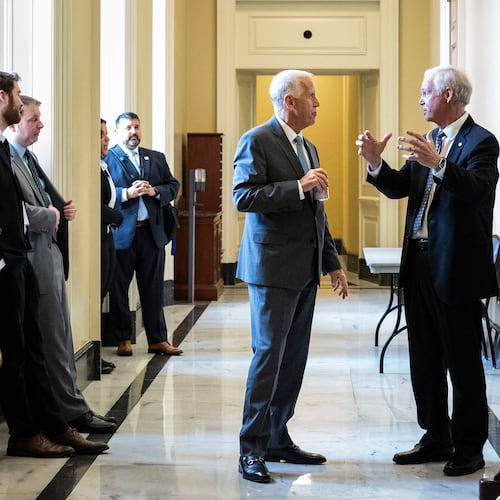David Mitchell is founder, CEO and president of Better Outcomes for Our Kids or BOOK. An Atlanta-based nonprofit, BOOK promotes school choice options, including traditional public schools, public charters, virtual schools and home schools to the African-American community.
In this piece, Mitchell discusses why choice is critical to raising the academic performance of African-American students.
By David Mitchell
Challenges facing the African-American community can be traced to education. While education is the great equalizer, many schools are not meeting the needs of our children. And there are a number of reasons why this is happening; I’m not blaming the teachers, the schools, nor the parents. This issue is bigger than assigning blame. We have to do right by our children.
We have to provide them with a menu of school options that put them on the road to success. We have to expose them to traditional public schools, charter schools, and home school options to arrive at a solution that meets their needs. I support Ambassador Andrew Young’s position: "If you can have the public schools, with the charter freedom, to give the parents and the faculty a chance to introduce new ideas and try new things, that will be good.”
When you look at student performance indicators across race, African-American students often lag behind other students.
● For African-American children in Georgia, 36 percent performed below the basic level, 45 percent scored at the basic level, 18 percent at the proficient level, and 1 percent at the advanced level on the National Assessment of Educational Progress test (US DOE 2015).
● While African-American students make up less than 16 percent of the K¬-12 student population in America, they make up 40 percent of the students attending schools with low graduation rates.
While these indicators are alarming, they don’t have to define our children. All children can learn and achieve. Our children can learn and achieve, we just have to ensure that they are in the right environment, with the right resources.
And this is why I started BOOK -- Better Outcomes for Our Kids. We are on a mission to raise awareness throughout the African-American community about the educational options that benefit our children. BOOK was my brainchild around filling a gap in the African-American community to understand school choice. I found myself inadvertently on the school choice journey when my wife and I had to make a decision about where to send our children to school.
We spent countless hours trying to solve our own personal educational choices. As my wife and I continued to ponder our options, I was convinced that if I am someone who doesn't know the available school options, my friends and others like me didn’t know their options either.
We’re not advocates for one type of school over another. We support schools that work for African-Americans … traditional, public charter. Informing African-American communities about public charters and school choice is our core function. We unapologetically focus on African-American communities because many have been devastated by underperforming schools and the lack of school choice.
For me, school choice is not pro charter, it's pro good schools. My mom was an Atlanta Public Schools teacher for 20 years. I am a product of traditional APS schools. Both experiences made me the man I am today, and for that I am proud and thankful.
As part of our commitment to educating the African-American community in Atlanta about school choice, in partnership with Atlanta Board of Education Chair Courtney English, and with the support of the Kendeda Fund, we took a delegation of school and community leaders to Washington, D.C.,to tour an ecosystem similar to Atlanta that included schools that were high-performing in African-American communities. We toured Friendship Public Charter School, Elsie Whitlow Stokes Community Freedom Public Charter School and KIPP DC.
We found a number of success examples that I am convinced can be replicated in Atlanta. And while all schools toured were not perfect, the communities that we toured had choices. Parents were informed about choices and they could exercise their options for their children. This is an example of what we need in Atlanta.
Our children represent our hopes and dreams for the future, and they deserve the best education that we can give them. They deserve schools that know no geographic, racial or economic boundaries. We have to deliver on our promise to our children. They deserve a chance to achieve. They deserve the best education.
About the Author
Keep Reading
The Latest
Featured




